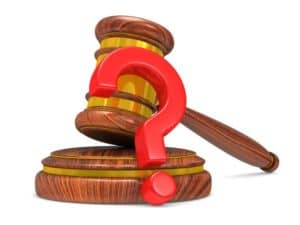It is extremely stressful to deal with debt and financial problems. However, there are available debt-relief solutions that you should take into consideration such as filing bankruptcy. Before filing a bankruptcy petition, it is highly recommended that you seek legal professional help from a reliable bankruptcy attorney in Royal Oak.
This article aims to answer the following questions:
1) What is wage garnishment?
2) When does wage garnishment occur?
3) What can you do to stop wage garnishment?
4) What are the types of bankruptcy that can stop wage garnishment?
5) What are the exceptions when you stop a garnishment?
6) Why is it important to consult with a bankruptcy attorney?
What is wage garnishment?
Garnishing of wages is a debt collection method that permits debt collectors to deduct portions of your wages. The amount withheld from your paycheck varies by scenario and is a lawful move taken to assist you in repaying your creditors.
When does wage garnishment occur?
The majority of wage garnishments start with a creditor filing a lawsuit against a debtor for not being able to pay back debts. If the collector’s claims prevail in court, they will be issued a judgment that will permit them to work with the individual’s employer to garnish wages. Consult with our Royal Oak bankruptcy attorneys to know more about how this works.
What can you do to stop wage garnishment?
The wage garnishment may be stopped if the creditor receives complete payment of the financial obligation, including court costs. Most debtors lack the financial means to repay their debts in full and if the creditor has gone to the trouble of obtaining a decision and garnishment, they are reluctant to receive anything less than a complete, lump-sum payment.
If you are, by any chance, able to collect the means to pay off debts, it may compromise some area of your budget in which the money was initially allocated.
- Paying in full
Late payments on other debts may harm your credit and result in unforeseen repercussions like foreclosure or car repossession. Using your retirement to repay debts may lead to future difficulties.
- Filing an Objection
If you have a legal basis to challenge the garnishment, you may be able to do so by filing an objection with the court based on the following:
- The assets or funds are not subject to garnishment under state law
- You are in the midst of a bankruptcy case
- A higher priority garnishment has already been placed against you for a higher amount
- The judgment has been fully paid
- The wage garnishment was issued incorrectly
You should file an objection within 14 days of receiving the writ of garnishment. If not, the periodic, non-periodic, or tax refund garnishment will occur and the creditor will collect the withheld cash.
- Filing for bankruptcy
A wage garnishment will be halted immediately if you file for bankruptcy protection under Chapter 7 (liquidation bankruptcy) or Chapter 13 (reorganization bankruptcy). It is advisable to consult with an experienced bankruptcy attorney before you file a bankruptcy petition. Royal Oaks bankruptcy attorneys will help you on how to file and help you understand bankruptcy laws.
When you file bankruptcy, you must pass the bankruptcy means test. Additionally, your monthly income and the types of debt that you owe (whether it is dischargeable or non-dischargeable) must also be considered. Once you have gathered all the necessary paperwork, you may now file a petition to the bankruptcy court and an automatic stay will be ordered.
What are the types of bankruptcy that may stop garnishment?
Bankruptcy Chapter 7 is a straightforward debt-reduction strategy that aims to provide immediate debt relief. Unsecured debts such as credit card bills, medical bills, or personal loans will be lawfully eliminated through filing bankruptcy. Creditor harassments and wage garnishments will be stopped once your bankruptcy case is brought to court.
In filing Chapter 13, you may be able to get back on track by stopping the creditor’s collection activities and providing appropriate repayment conditions. Seeking legal advice from bankruptcy lawyers is important for you to come up with a budget that takes into account your monthly income and debt commitments.
Your secured debt commitments and your monthly living expenses will first be taken into account. Only after certain payments have been paid in full can funds be made available for unsecured debts. You must do your best to pay these obligations throughout the debt repayment plan. Any outstanding balances are lawfully eliminated at the end of the payment plan period.
What are the exceptions when you stop a garnishment?
Stopping wage garnishment for child support or alimony is not easy. Once it has been decided in favor of collections and a judgment has been issued, they frequently remain in place, even during a bankruptcy proceeding.
Why is it important to consult with a bankruptcy attorney?
If you are considering a bankruptcy filing, you must first choose what type of personal bankruptcy is the best option for you. The goal is to obtain a bankruptcy discharge and eventually be able to take steps that will rebuild your credit report. A credible and trusted bankruptcy lawyer can assist you before and after the bankruptcy process.
Have a fresh start with your finances. Call our Royal Oak bankruptcy attorneys at Hammerschmidt Stickradt & Associates for legal help and assistance.

